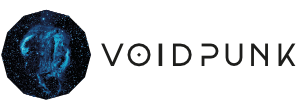RPG CInematics
After having been stuck at the system design stage for my Voidpunk pen-&-paper role-playing game for more than a year, I’m finally making conceptual progress. (As previously elaborated upon, I was torn between creating another “classical” system with a load of realism, tables, and dice rolls—think Twilight: 2000, Cyberpunk 2.0.2.0., or my own Aliens system of yore—and a “bare-bones” system that prioritizes a fast-paced narrative and quickly cuts to the action—think Blades in the Dark, Cthulhu Dark, or Trophy Dark.)
One of the things that bugged me with regard to the “bare-bones” systems—occasionally stated in core rules and frequently repeated in the wild—is a specific idea from this corner as to what counts as “cinematic” and what doesn’t, culminating in the proposition “cut everything out that you wouldn’t see in a movie or TV show.”
Well. What movie or TV show exactly? An action movie? A David Lynch episode? An art movie? From which genre? And for which audience? Plus, last but not least, from which period? In the 1970s detective mystery show Columbo, for example, the camera meticulously follows Peter Falk’s character making telephone calls, from counting change and inserting coins to dialing interminably long numbers to waiting for the other party to pick up the receiver. That kind of show? Or rather the kind of non-stop action flick from the MCU? Oh wait—remember the Avengers having a long, reflective moment in Hawkeye’s family homestead in Age of Ultron, with Thor stepping into Lego? Or, what about the lengthy planning sessions in heist movies? Would the actual heist be as interesting without having gone through all the steps beforehand, knowing what needs to go right and what could go wrong?
What it comes down to, it’s not about what you wouldn’t see “in a movie” but wouldn’t see “in the kind of movie you personally prefer or are familiar with,” and that’s a completely different story. Also, it’s baloney. There are other criteria that are way more interesting and way more useful to devise the style, content, and pace of your role-playing system.

